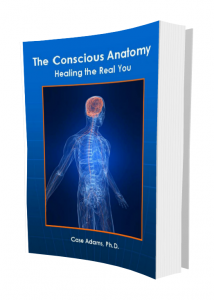Can Purpose and Meaning in Life Extend Your Lifespan?

Lifespan linked to purpose.
It may seem obvious that having a purpose for existence and a meaningful life can lead to a longer life, but this is not actually an accepted fact. Some scientists believe that purpose or meaning to life has nothing to do with the health or longevity of the body.
Many of these same scientists also suppose there is no ultimate meaning to life as well. Many persist that we are genetic machines and life is an accident – and we are simply accidental results of an evolutionary process that got out of hand.
You might ask: If there is no meaning to life, why are scientists exploring whether there is a connection between having a meaningful life and lifespan?
The answer to this particular question is that many scientists believe that one can easily manufacture a meaning to life. Even though there might not be an ultimate meaning.
Let’s get back to this question in a minute.
In this article
Subjective well-being linked to lifespan
Research has been studying why some people die sooner than others for many years. While disease pathologies and genetics are often connected to lifespan, some people simply live longer than others despite these connections.
Researchers have been exploring this anomaly for several decades now. The research has recently associated what is now called “subjective well-being” to lifespan. The more subjective well-being a person has, the longer they will live, according to the research.
Of course, there is a limit – it is not as if someone with subjective well-being will live for a thousand years or something. But to the degree of the extent of a healthy lifespan, the research is finding that someone with a higher subjective well-being will tend to live longer.
What is subjective well-being? Firstly, it is subjective – meaning that it is self-recognized. It is an internalized feeling of well-being – coming from another source other than our physical body or economic condition.
Yet it goes deeper than this. Within subjective well-being there are several subtypes according to the research:
• evaluative well-being: a feeling of current life satisfaction
• hedonic well-being: feelings of pleasure, happiness
• eudemonic well-being: a sense of purpose and meaning in life
Each of these types of subjective well-being have been connected in different ways to lifespan. In combination, the sense of subjective well-being is linked to living longer.
How did scientists determine this?
There have been a number of studies that have surveyed, followed and examined people of varying ages in order to calculate the relationship between their subjective well-being and their lifespan.
One of the most recent of these is the English Longitudinal Study of Ageing. This study has followed over 12,000 people from Europe for about 13 years – since 2002. The study population has included people who were under 50 years old, people between 50 and 54, between 55 and 59, between 60 and 64, between 65 and 69, between 70 and 74, between 75 and 79 and over 80 years old. At the beginning of the study there were between 576 and 2,200 people in each age group.
These men and women each were interviewed and receive surveys about every two years through 2014-2015. These surveys include well-being measurements as well as nurse visits and examinations. In other words, they have been followed over the years.
Not only have they been followed – but their mortality has been tracked as well. Their relative disease conditions and their lifespan has also been measured.
Recent calculations of the study have found that nearly a third of those who had the lowest levels of subjective well-being died during the nine years. Meanwhile only 9% of those who had higher levels of well-being died during that same period.
This means that those with higher subjective well-being scores have had lower risk of death among these age groups by over a third.
Of course, this doesn’t mean that people with greater well-being will live three times as long. But it could mean that those with greater subjective well-being might live many years longer.
But this isn’t the only study showing this
In 2008, researchers from the University College London conducted a meta-analysis of research around the world on aging and well-being up til that time. The researchers found 35 studies of healthy populations and 35 studies of disease populations. Their meta-analysis – meaning they calculated the relationship between subjective well-being and mortality among all of the studies – was revealing. They found that having a positive subjective well-being reduced the risk of death by 18 percent.
In this study, the researchers broke out the type of well-being into two general groups:
– emotional well-being – positive mood, joy, happiness, vigor, energy
– positive dispositions – life satisfaction, hopefulness, optimism, sense of humor
Both of these groups had a positive effect upon mortality – meaning those with greater levels of each of these types of well-being lived longer.
This study also found that positive well-being was also linked to lower levels of deaths from heart disease and even from HIV. In other words, having greater sense of well-being and a meaningful life relates directly to many disease conditions.
We can add to this the Gallup World Poll. This is an ongoing survey being conducted in over 160 countries around the world. This study has shown that among those in higher-income regions, greater evaluative well-being is linked with living longer.
In other poorer countries, the relationships have been more difficult to ascertain. For example, among some eastern European and Latin American countries, well-being tends to drop with age. This trend may well indicate the economic realities of those regions, especially as they relate with care for the elderly – related to evaluative well-being.
True well-being is in fact unrelated to pure income. A 2007 study of 450,000 responses by the Gallup Organization found that emotional well-being is unrelated to income. This contradicts the notion that money buys happiness.
Multiple studies have shown that well-being is linked to diseases such as heart disease, lung disease and arthritis.
Meaning of life and well-being
Now back to the relationship between having eudemonic well-being and living longer. As mentioned above, eudemonic well-being means having an ultimate meaning to life.
Some of this is quite logical: In order to persist in the face of a sometimes-fatal disease – one’s chances of survival increases when one has a purpose for living. This has been proven out by the significant incidence of death among people who have lost their spouse recently. And those who have endured traumatic crises also often report a purpose for living drove them on.
But beyond this lies an interesting conundrum: If one were to accept the science that life is extended when life has a meaning – this points to the reality that life does have meaning.
As I illustrated the science in “The Conscious Anatomy,” scientific research also confirms that we have an identity deeper than simply our physical bodies: A spiritual identity.
If one assumes that we are simply these physical machines, then once the body dies, life stops. This would ultimately mean there is no meaning to life outside of the temporary physical body.
Such a meaningless hypothesis not only contradicts the research that having a meaning for life extends the lifespan of the body: It also contradicts the notion that we are each equal despite having differences in bodies. A person with a handicapped body, for example, is considered equal to a person with no handicap. Or a person with a body of one color being equal to a person with a body of a different color. Or ethnicity. And so on.
The basic assumption of equality despite differences in our body types expounds the same conclusion that research showing lifespan equates to having a meaning in life: That we are spiritual beings, not simply physical bodies.
This of course embraces another basic fundamental of natural health: Mind, body, spirit. We can’t forget the ‘spirit’ part of this equation.
REFERENCES:
Shankar A, Rafnsson SB, Steptoe A. Longitudinal associations between social connections and subjective well-being in the English Longitudinal Study of Ageing. Psychol Health. 2015;30(6):686-98. doi: 10.1080/08870446.2014.979823.
Steptoe A, Deaton A, Stone AA. Subjective well-being, health, and ageing. Lancet. 2015 Feb 14;385(9968):640-8. doi: 10.1016/S0140-6736(13)61489-0.
Kahneman D, Deaton A. High income improves evaluation of life but not emotional well-being. Proc Natl Acad Sci U S A. 2010 Sep 21;107(38):16489-93. doi: 10.1073/pnas.1011492107.
Chida Y, Steptoe A. Positive psychological well-being and mortality: a quantitative review of prospective observational studies. Psychosom Med. 2008 Sep;70(7):741-56. doi: 10.1097/PSY.0b013e31818105ba.















